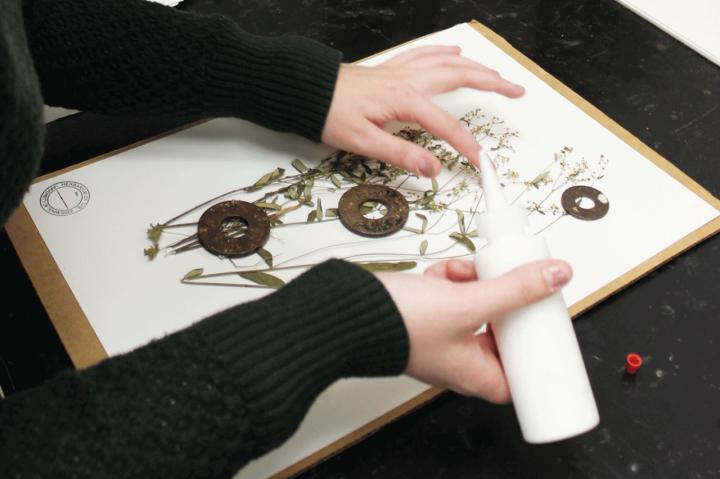
Credit: University of Tennessee, Knoxville
The University of Tennessee, Knoxville, Herbarium is part of a multimillion-dollar grant to digitize and study bryophytes and lichens, two important species in cryptobiotic communities. Jessica Budke, director of the herbarium, and colleagues from 24 other institutions across the US are sharing an award of $3.6 million from the National Science Foundation to image and digitize associated metadata for close to 1.2 million lichen and bryophyte specimens housed in their collections.
The project, Building a Global Consortium of Bryophytes and Lichens: Keystones of Cryptobiotic Communities, will enable researchers around the world to access specimen metadata and photos of the plants.
The UT Herbarium is one of the largest plant natural history collections in the Southeast, with more than 640,000 specimens including more than 180,000 mosses and lichens. Budke, who is also an assistant professor in UT’s Department of Ecology and Evolutionary Biology, is the lead principal investigator for the project.
“Natural history collections are a physical record of our planet’s biodiversity across space and time,” said Budke. “These specimens not only serve as records of the past, but they are a critical resource for our future. They help us to answer important questions surrounding invasive species and conservation biology, and help us to describe species that are new to science.”
Lichens and bryophytes are hosts to cryptobiotic communities that play a critical role in stabilizing soil, preventing erosion, absorbing rainfall, and providing nutrients for the growing plants around them. This hidden life creates a critical miniature forest that serves as an important habitat for tiny animals and forms a “living skin” found throughout the world, from canyon deserts to polar ice caps.
“For the first time we will be taking photos not just of the label information but also the physical organisms, which will enable researchers to digitally peek inside the packet to collect data from these specimens remotely,” Budke said. “The more data about these specimens that is available online, the better researchers can expand the scope and impact of their research questions.”
Researchers with the project will partner with Zooniverse, a citizen science web portal, to develop an online platform for scientists and laypersons to make observations on character traits that can improve the available information and fill in some of the gaps in the scientific labeling process.
This integrated data will form a critical resource for evolutionary and ecological studies that researchers hope will lead to a deeper understanding of the role bryophytes and lichens play in carbon and nitrogen cycling, the evolution of biodiversity, and other important processes.
In addition to collecting information about specimens, undergraduate students at the partner institutions will have an opportunity to receive funding for professional training in capturing and processing images, digitization, and collection management. Researchers will leverage local resources to promote the program to students from groups underrepresented in STEM fields and integrate public outreach to K-12 science classes and science youth groups.
“This project represents a collaborative effort of 25 major research institutions,” Budke said. “It will push the field of organismal biology forward by leaps and bounds, enabling us to tackle large-scale biology questions that none of us could answer alone.”
###
Click here for a list of institutions participating in the project.
CONTACT:
Amanda Womac (865-974-2992, [email protected])
Media Contact
Amanda Womac
[email protected]
Original Source
https:/




